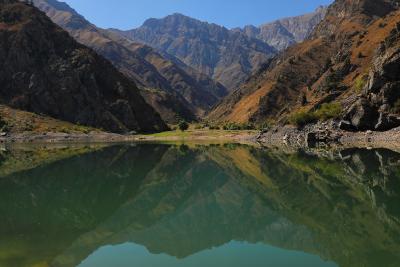Uzbekistan gets $142 mn World Bank concessional credit for forest restoration
By IANS | Updated: June 10, 2022 05:30 IST2022-06-10T05:15:03+5:302022-06-10T05:30:06+5:30
Tashkent, June 10 The World Bank has approved a $142 million concessional credit for Uzbekistan to support a ...

Uzbekistan gets $142 mn World Bank concessional credit for forest restoration
Tashkent, June 10 The World Bank has approved a $142 million concessional credit for Uzbekistan to support a project to restore degraded forested lands in various regions of the country, and promote Uzbekistan's collaboration with other Central Asian countries on transboundary landscape restoration, the bank's Tashkent office said.
The project is part of the Resilient Landscapes in Central Asia programme that aims to increase resilience to further desertification, landscape degradation and climate change, it added on Thursday.
The new World Bank-funded project will help implement the Concept for Developing Uzbekistan's Forest System by 2030, adopted by the Uzbek government in October 2020, Marco Mantovanelli, the World Bank country manager for Uzbekistan, said in a statement.
"Through tree-based landscape restoration interventions in the areas with degraded lands, the project will contribute to increased resilience of landscapes, food systems, people and infrastructure, creation of natural resource management-based jobs and small and medium enterprises, and investments in nature-based tourism and protected areas," he added.
The project will be implemented by Uzbekistan's State Committee on Forestry, Xinhua news agency reported.
According to the World Bank, Uzbekistan has low forest coverage and over the past 30 years, it has been degraded because of uncontrolled animal husbandry, increasing demand for industrial and fuel wood due to limited energy sources in rural areas, and expansion of irrigated agriculture into forests.
Disclaimer: This post has been auto-published from an agency feed without any modifications to the text and has not been reviewed by an editor
Open in app